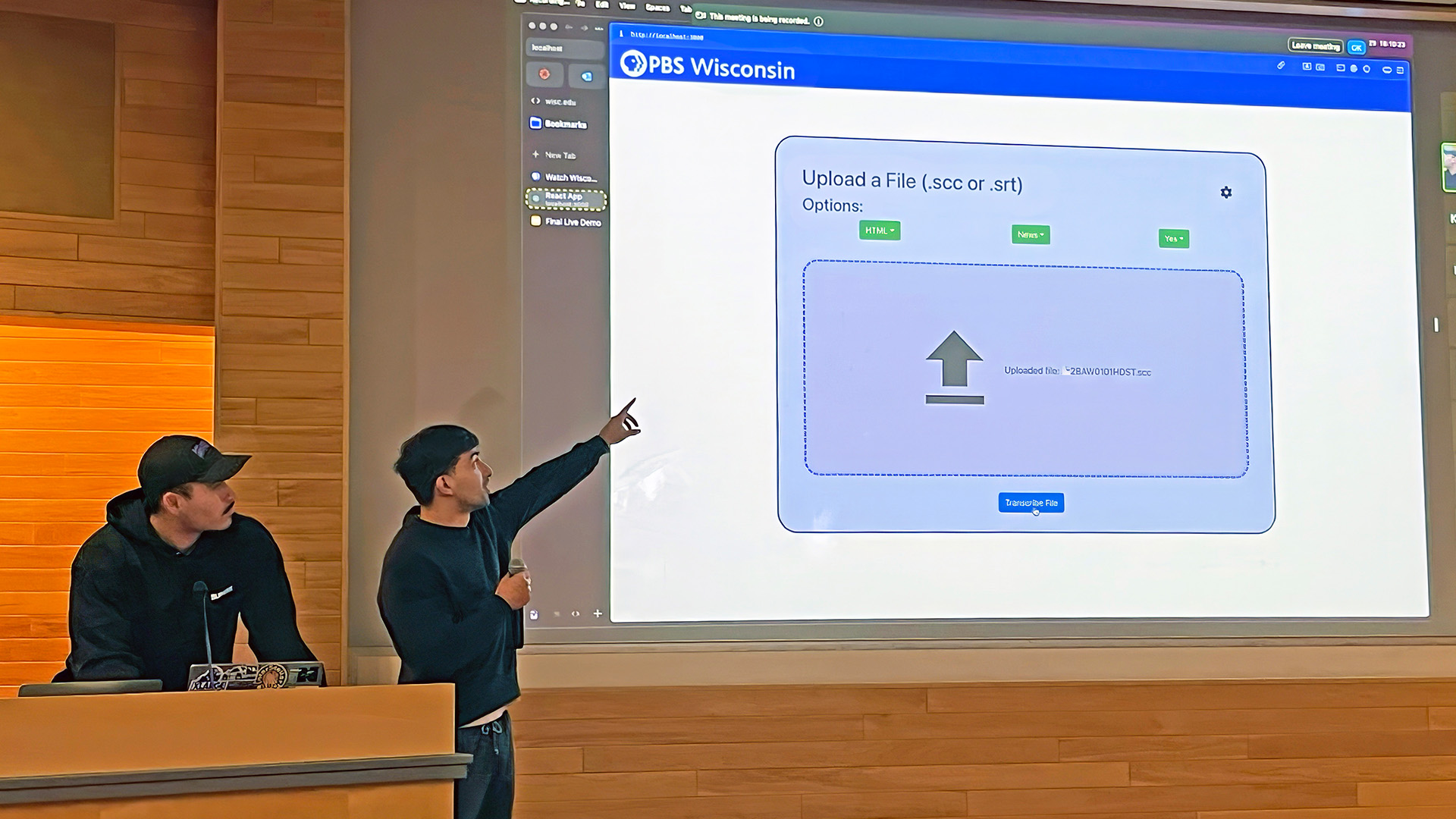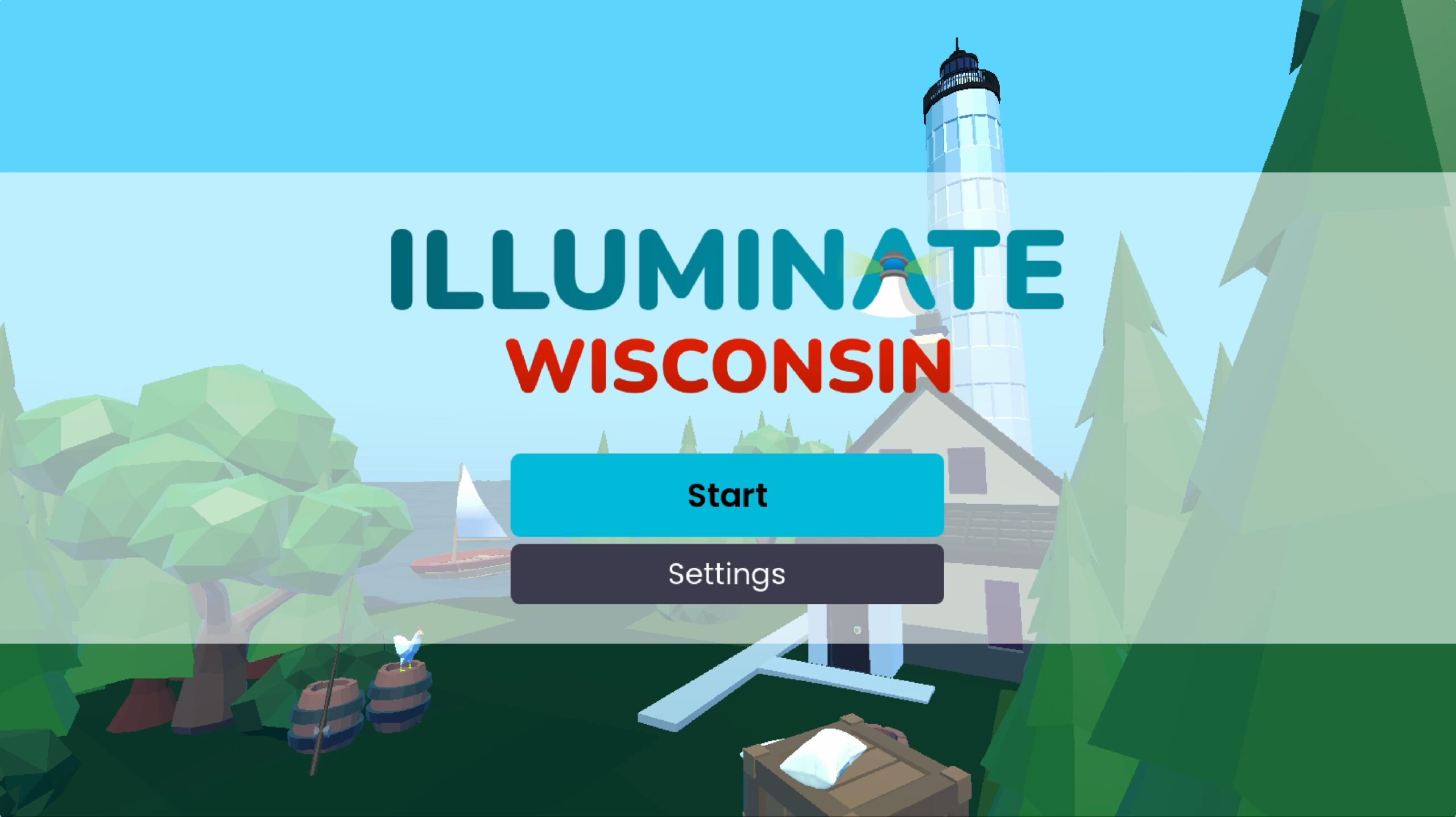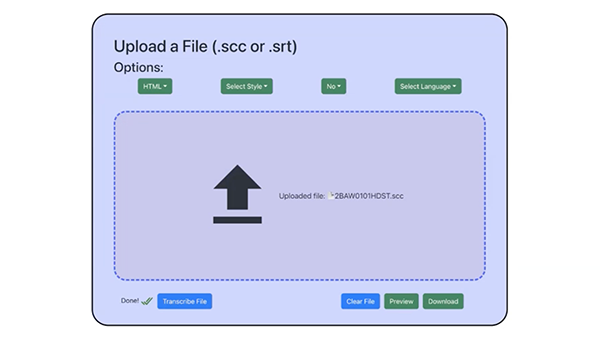PBS Wisconsin began a partnership with the computer sciences (CS) department in the University of Wisconsin-Madison School of Computer, Data and Information Sciences (CDIS) during the 2023-24 academic year to sponsor undergraduate student cohorts in a capstone course.
PBS Wisconsin entered the project to offer hands-on experiences to students that may not be found in a traditional campus setting. This also benefits PBS Wisconsin by helping the organization make its interactive and digital programming become more accessible. Additionally, PBS Wisconsin hopes to build a network of campus partners and emerging industry professionals.
For both the fall and spring semesters, PBS Wisconsin staff members mentored three teams of five undergraduate students. PBS Wisconsin staffers provided a scope for their work with a prompt as part of a specific project that would make a tangible impact on PBS Wisconsin projects. In addition to regular course lectures and discussions, the curriculum for each team included a kickoff meeting to introduce the prompt, regular weekly meetings and midterm presentations followed by final demonstrations.

UW-Madison Computer, Data and Information Sciences students Iliyas Alabdulaal (left) and Leonardo Alfaro (right) present a demonstration during a computer sciences capstone course in the Spring 2024 semester.
“Our collaboration with the UW-Madison School of Computer, Data & Information Sciences began a year ago, sparked by the idea of sponsoring a capstone project,” said Amber Samdahl, PBS Wisconsin director of design & innovation. “This semester-long capstone course involves around 100 students, primarily seniors majoring in computer sciences, but also includes participants from across the CDIS school and the broader UW-Madison campus.”
PBS Wisconsin became the first organization outside of the private sector to participate in the course since its inception in 2021. UW-Madison CS instructional administrator Amber Field is the capstone course’s lead lecturer and spurred on student progress in the course with weekly tasks and steered them to achieve objectives for the entire course.
“PBS Wisconsin was our first non-profit partner for the capstone program and I loved having a very meaningful, real-world problem for my students to work on: how to make a 3D lighthouse experience accessible to everyone,” Field said. “This was not your run-of-the-mill new feature project, but something that will really mean something to PBS Wisconsin viewers with and without disabilities. It was exciting knowing that this experience would enhance a series that PBS Wisconsin was already working on.”
“For PBS Wisconsin, a key objective was to connect with the students, faculty and staff of the CDIS school,” Samdahl said. “Computer Sciences is the largest major on the UW-Madison campus and the Information Science degree is the fastest growing program. UW-Madison is significantly investing in the school’s future, including the construction of their new building, Morgridge Hall. It’s exciting for us to partner with such a dynamic and important part of the campus community.”
Providing real-world educational experiences for students
During the fall 2023 semester, PBS Wisconsin interactive media producer Angelina Shi and PBS Wisconsin web developer Matt Barnes mentored a team of five students who were charged with research and developing methods to make PBS Wisconsin’s interactive content more accessible and attainable for larger segments of its audience.
“The original intention was to create something interactive relating to an upcoming project entitled Wisconsin Lighthouses, which will include a documentary and interactive components, and use whatever they created as a space to think about accessibility features in interactive web content,” Shi said. “That’s traditionally an element not included in a lot of games, for example, and a lot of interactive content. [Accessibility] is not easily built in.”
The students in the cohort took full advantage of the opportunity.
“They took the initiative to learn how to work inside a game engine for the project,” Shi said. “For accessibility, they experimented with features like font sizing, color contrast and audio. They also did some simple 3D modeling and made shaders. For example, there are water shaders which if you apply to a 3D plane that can make it look like moving water. I was not expecting them to go that hard into the art component, visual component, which was neat.”

Students in the UW-Madison CDIS/CS Fall 2023 Capstone Course developed a prototype of an interactive lighthouse experience, Illuminate Wisconsin, under the guidance and mentorship of PBS Wisconsin staff.
The spring 2024 semester saw Samdahl and PBS Wisconsin digital services manager Tim Schneider advise two five-person teams that were tasked to investigate methods to improve and automate closed captioning and transcription.
“This spring, we identified a project to help make PBS Wisconsin’s video content more accessible and easier to find on our website,” Schneider explained. “Right now, we offer transcripts with some of our videos, but creating them still involves some manual work. We challenged the students to develop a system that can automatically turn closed caption files into plain text transcripts. These more easily produced transcripts would make our videos accessible to viewers with hearing issues and help search engines better index our content, making it easier for our audience to search for and find.”
The image at the top of this page shows UW-Madison CDIS students — from left to right: Dinesh Tadepalli, Shreyan Reddy Manyam and Oliver Smith — providing a demonstration during the spring 2024 semester.
Helping PBS Wisconsin interactive and digital programming become more accessible
Deploying AI tools to improve accessibility to PBS Wisconsin’s interactive and multimedia content is a time-consuming and important task. However, it remains a facet of PBS Wisconsin programming that current full-time staff members may not always have time to adequately address.
“For this project, we had the students develop code for PBS Wisconsin to integrate into our existing setups,” Schneider said. “We expect the app will make our transcript-related workflows smoother and free up some of the manual work we’re doing now. If it works well, we’ll look into training our team on the app the students created. But first, we will test it, talk about it and consider any improvements we might want to make.”

A student team in the UW-Madison CDIS/CS Capstone Course constructed an application to produce video transcripts during the Spring 2024 semester that will make PBS Wisconsin’s transcript-related workflows smoother and eliminate some of the manual work that has to be done now.
Engaging a network of campus partners and prospective employees
The capstone courses were a quality opportunity for PBS Wisconsin to expand its reach as an organization to two important groups: undergraduate students who are preparing to enter the job market and industry professionals at private-sector companies.
“Our collaboration with PBS Wisconsin not only enriches students’ practical experience but also instills a sense of social responsibility as they create meaningful, impactful solutions that directly benefit the community served by a non-profit,” said Justin Hines, UW-Madison CDIS director of corporate relationships.
PBS Wisconsin proved itself as a viable, worthwhile option for opportunities after graduating from college to a cohort of emerging professionals and present what possible future positions could be found at the organization.
“It seemed like all the people who talked to us on the first day that we were presenting projects were not thinking about PBS Wisconsin or any organization like it as a job opportunity or as somewhere they would even look for work,” Shi said. “When they think about PBS Wisconsin, they probably think of broadcast [television], but there are many more opportunities than what people might initially assume.”
Collaborations like this with people and organizations will remain a priority for PBS Wisconsin in the future as access to and visibility of its content, especially in digital spaces, becomes even more crucial. The innovations and network that result will be well worth the investment of time and resources.
“It takes work to build and maintain these partnerships, even when we’re part of UW-Madison,” Schneider said. “Looking for opportunities like this that are relatively easy to access in terms of what is required from us, it really wasn’t that much compared to what we got out of it. Just having an early relationship with these young talented computer science engineers is something that will come back to us in the future. We’re making an investment in working with these students. That’s something that will pay off down the road for us.”
What’s next?
Samdahl revealed that this partnership with the UW-Madison CS and School of CDIS will continue in the fall of 2024 to facilitate practical experiences for UW-Madison students, further optimize accessibility to PBS Wisconsin interactive and digital content, and strengthen a network of campus partnerships to forge more connections with prospective employees.
“It’s exciting for us to collaborate with CDIS and have a space to experiment with new ideas,” Samdahl said. “This partnership aligns well with our mission to further education throughout the state. It provides an excellent opportunity to connect with students and allows us to grow and learn alongside them, meeting multiple goals simultaneously.”
Samdahl looks forward to sponsoring a team in the course next fall. She and her PBS Wisconsin colleagues are enthusiastic about future developments that are possible through this partnership with the UW-Madison CDIS.
“As we consider the future of public media and digital spaces, it’s truly exciting to build more partnerships with UW-Madison, especially given their significant investments in the School of Computer Sciences,” Samdahl said. “UW is clearly committed to advancing in this space and we are thrilled to be part of that journey and work towards this future together.”
 Passport
Passport








What do you think?
I would love to get your thoughts, suggestions, and questions in the comments below. Thanks for sharing!
Mike DeVine